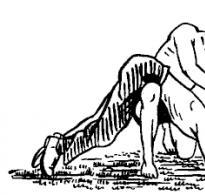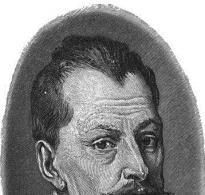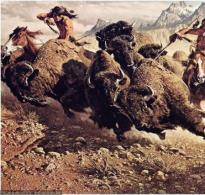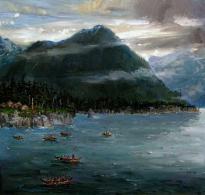Anatoly Rybakov: Unknown Soldier. Book: Unknown Soldier - Anatoly Rybakov Read an excerpt from the story of the unknown soldier
In December 1966, on the 25th anniversary of the defeat of the Nazi troops near Moscow, the ashes of the Unknown Soldier were transferred to the Alexander Garden from the 41st kilometer of the Leningrad Highway - the place of bloody battles.
The eternal flame of glory, bursting out from the middle of a bronze military star, was lit from a flame blazing on the Field of Mars in St. Petersburg. “Your name is unknown, your feat is immortal” - inscribed on the granite slab of the tombstone.
On the right, along the Kremlin wall, urns are placed in a row, where the sacred land of the hero cities is kept.
Website of the President
FIGHTS AT THE CROSSROADS OF THE LENINGRAD AND LYALOVSKY HIGHWAYS
In 1967, a local forester, an eyewitness to a fierce battle at the 41st kilometer, told the builders of Zelenograd, who helped build a monument with a T-34 tank, about an unusual episode of the battle in 1941: “German armored vehicles were approaching along the highway from Chashnikov ... Suddenly our tank moved towards them. Having reached the intersection, the driver jumped into the ditch on the move, and a few seconds later the tank was hit. A second tank followed. History repeated itself: the driver jumped, the enemy shot, another tank cluttered the highway. So a kind of barricade of wrecked tanks was formed. The Germans were forced to look for a detour to the left
An excerpt from the memoirs of the commissar of the 219th howitzer regiment Alexei Vasilyevich Penkov (see: Proceedings of the GZIKM, issue 1. Zelenograd, 1945, p. 65-66): the resistance of our neighbor on the left ... and through the village of Matushkino, tank units entered the Moscow-Leningrad highway, semi-surrounding our rifle units and began shelling firing positions with tank guns. Dozens of German dive bombers hung in the air. Communication with the command post of the regiment was broken. Two divisions deployed for all-round defense. They shot at German tanks and infantry with direct fire. Chuprunov, I and the signalmen were 300 meters from the firing positions of the batteries on the church bell tower in the village of B. Rzhavka.
With the onset of darkness, the Nazis calmed down and fell silent. We went to see the battlefield. The picture for the war is familiar, but terrible: half of the compositions of gun crews died, many commanders of fire platoons and guns failed. 9 guns, 7 tractors were destroyed. The last wooden houses and barns on this western outskirts of the village were burning down...
On December 1, in the area of the village of B. Rzhavka, the enemy only occasionally fired mortars. On this day, the situation stabilized ...
HERE AN UNKNOWN SOLDIER DIE
Newspapers in early December 1966 reported that on December 3, Muscovites bowed their heads in front of one of their heroes - the Unknown Soldier, who died in the harsh days of December 1941 on the outskirts of Moscow. In particular, the Izvestia newspaper wrote: “... he was slain for the Fatherland, for his native Moscow. That's all we know about him."
On December 2, 1966, representatives of the Moscow City Council and a group of soldiers and officers of the Taman division arrived at the place of the former burial place on the 41st km of the Leningradskoye Highway around noon. The Taman soldiers cleared the snow around the grave and proceeded to open the grave. At 2:30 pm, the remains of one of the soldiers resting in a mass grave were placed in a coffin, twined with an orange-black ribbon - a symbol of the soldier's Order of Glory, on the lid of the coffin in the heads - a helmet of the 41st year. A coffin with the remains of the Unknown Soldier was placed on the pedestal. All evening, all night and the next morning, changing every two hours, young soldiers with machine guns, veterans of the war, stood in the guard of honor at the coffin.
Cars passing by stopped, people from the surrounding villages, from the village of Kryukovo, from Zelenograd, walked. On December 3, at 11:45 a.m., the coffin was placed on an open car, which moved along the Leningrad highway to Moscow. And everywhere along the way, the funeral procession was accompanied by residents of the Moscow region, lined up along the highway.
In Moscow, at the entrance to the street. Gorky (now Tverskaya), the coffin was transferred from the car to an artillery carriage. An armored personnel carrier with an unfolded combat banner moved on to the sounds of a mourning march of a military brass band. He was accompanied by soldiers of the guard of honor, participants in the war, participants in the defense of Moscow.
The cortege was approaching the Alexander Garden. Here everything is ready for the rally. On the podium among the leaders of the party and government - participants in the battle for Moscow - Marshals of the Soviet Union G.K. Zhukov and K.K. Rokossovsky.
“The Tomb of the Unknown Soldier near the ancient walls of the Moscow Kremlin will become a monument of eternal glory to the heroes who died on the battlefield for their native land; from now on, the ashes of one of those who shielded Moscow with their breasts rest here,” these are the words of Marshal of the Soviet Union K.K. Rokossovsky, said at the rally.
A few months later, on May 8, 1967, on the eve of Victory Day, the monument "Tomb of the Unknown Soldier" was unveiled and the Eternal Flame was lit.
IN NO OTHER COUNTRY
EMAR VILLAGE (Primorsky Territory), September 25, 2014. The head of the presidential administration of the Russian Federation, Sergei Ivanov, supported the proposal to make December 3 the Day of the Unknown Soldier.
“Such a memorable day, if you like, a day of commemoration, could well be done,” he said, responding to a proposal made during a meeting with the winners and participants of the competition among school search teams “Search. Finds. Opening".
Ivanov noted that this is especially relevant for Russia, given that there were no such number of missing soldiers as in the USSR in any country. According to the head of the presidential administration, the majority of Russians will support the establishment of December 3 as the Day of the Unknown Soldier.
THE FEDERAL LAW
ON AMENDMENTS TO ARTICLE 1.1 OF THE FEDERAL LAW "ON THE DAYS OF MILITARY GLORY AND MEMORABLE DATES OF RUSSIA"
To introduce into Article 1.1 of the Federal Law of March 13, 1995 N 32-FZ "On the days of military glory and memorable dates in Russia" ... the following changes:
1) add a new paragraph fourteen of the following content:
President of Russian Federation
Consultant Plus
UNKNOWN SOLDIER
For the first time, this concept itself (as well as a memorial) appeared in France, when on November 11, 1920, an honorary burial of an unknown soldier who died in the First World War was made in Paris near the Arc de Triomphe. And at the same time, the inscription “Un soldat inconnu” appeared on this memorial and the Eternal Flame was solemnly lit.
Then, in England, at Westminster Abbey, a memorial appeared with the inscription "Soldier of the Great War, whose name is known to God." Later, such a memorial appeared in the United States, where the ashes of an unknown soldier were buried at the Arlington Cemetery in Washington. The inscription on the tombstone: "Here lies a famous and honored American soldier, whose name only God knows."
In December 1966, on the eve of the 25th anniversary of the Battle of Moscow, the ashes of an unknown soldier were transferred to the Kremlin wall from a burial place near the 41st kilometer of the Leningradskoye Highway. On the slab lying on the tomb of the Unknown Soldier, an inscription is made: “Your name is unknown. Your feat is immortal "(author of the words - poet Sergei Vladimirovich Mikhalkov).
Used: in the literal sense, as a symbol of all the dead soldiers, whose names have remained unknown.
Encyclopedic Dictionary of winged words and expressions. M., 2003
Yes, yes, please, we'll meet again. We have a lot to discuss. We must decide with the first book of Sovremennik. A historical fact for us - the first book of the publishing house.
Our business card. And the design, and the cover, and the print - all the very best. I have already spoken with Mikhalkov, Bondarev ... We decided: it will be Anatoly Rybakov's novel "Krosh's Notes" - you, of course, read ... And you, Valentin Vasilyevich? - turned to Sorokin.No, I haven't read Rybakov. I don't have time for serious writers. Blinov interrupted the director: - Tonight we will meet in the main editorial office and decide. His face turned purple with excitement. He concluded in a firm voice:
But in general, Yuri Lvovich, we will agree right away: the selection of manuscripts and their preparation for publication is the business of the editors and the main editorial board. As for the first edition, I will offer a book by Mikhail Aleksandrovich Sholokhov. Maybe we should include his war stories in it.
This was Blinov's first action against Prokushev, Mikhalkov, Kachemasov and Yakovlev - Jewish gods who sought to start a publishing house created for Russian writers by publishing a book by a Jewish author, by the way vile and slanderous in content. With this courageous act of his, Andrei Dmitrievich sharply marked a crack in relations with the director, which will soon turn for him and for us, his deputies, into a deep, insurmountable ditch.
Yes, yes - of course, everything will be so, but you boldly come out from behind my back, fight with this devil - I'm already tired of him, he's starting to bother me.
They walked in silence for a minute. In the dining-room Andrei Dmitrievich continued:
Here is the first book. We have already decided, and the Committee agrees, - we are publishing Sholokhov's stories, and now he is again: "Let's start Krosh's Notes." I flared up: “Yes, how much can you! We have already decided, and everyone agrees, and the editor is already working, we have agreed with Sholokhov. Some obsession!”
Now the prose is your concern, connect quickly. I can't deal with him alone.
That day I got a call from the Union of Russian Writers - from Mikhalkov. An acquaintance from the institute called, a small man in the Union, but, apparently, at someone's prompt.
Congratulations on your appointment. All the new prose of Russian writers will now go through your hands. With whom did you decide to start? Whose book will be the first? - We decided the fate of the first book together: we will publish Sholokhov. And the design is already being prepared, the printing house has been determined ... - That's right, but you, old man, are the deputy chief and are responsible for everything there. - Yes, for what to answer? For Sholokhov? He is our first writer, who should we publish if not him?
The first is the first, but only your publishing house Sovremennik - this, after all, also says something. Should modern literature be published? And Sholokhov is good, of course, but this is a civil war.
Where are you heading? Are you advocating for Natan Rybakov? I tell you the issue is settled. Karelin gave good.
Well, okay, old man... You don't hear the conjuncture well. You need to look higher - not at Karelin. You are now out in the open. Here you will get a draft from all sides. Look, it wouldn't blow. I'm talking to you in a friendly way. And if you want to continue to inform you that here on Olympus they think what kind of winds blow, - keep quiet about our conversation. Keep it a secret, I'll be nice.
Adventures of Krosh - 3
As a child, every summer I went to the small town of Koryukov to visit my grandfather. We went swimming with him to Koryukovka, which is not wide, fast and
Deep river three kilometers from the city. We undressed on a hillock covered with sparse, yellow, crushed grass. From the state farm stables came
A tart, pleasant smell of horses. There was the sound of hooves on the wooden deck. Grandfather drove the horse into the water and swam beside him,
Grasping the mane. His large head, with wet hair stuck together on his forehead, with a black gypsy beard, flickered in the white foam of a small
Buruna, next to the wildly squinting horse's eye. So, probably, the Pechenegs crossed the rivers.
I am the only grandson and my grandfather loves me. I love him very much too. He brought back good memories of my childhood. They still care
And they touch me. Even now, when he touches me with his wide, strong hand, my heart aches.
I arrived in Koryukov on August 20, after the final exam. Got a four again. It became obvious that I was not going to university.
I will.
Grandfather was waiting for me on the platform. The same as I left it five years ago, when I was last in Koryukovo. His short thick
The beard was a little grey, but the broad-cheeked Face was still marbled white, and the brown eyes were as lively as ever. Still the same worn out
Dark suit with trousers tucked into boots. He wore boots in both winter and summer. Once he taught me to put on footcloths. deft movement
He twisted the footcloth, admired his work. Pathom pulled on his boot, grimacing not because the boot stung, but from the pleasure that he sat so well
On the foot.
Feeling like I was performing a comic circus act, I climbed onto the old cart. But no one at the station square paid any attention to
us attention. Grandfather touched the reins in his hands. The horse, shaking its head, ran off at a brisk trot.
We drove along the new highway. At the entrance to Koryukov, the asphalt turned into the well-known cobbled pavement. According to grandfather,
The street should be asphalted by the city itself, and the city has no funds.
- What are our incomes? Previously, the tract passed, traded, the river was navigable - it became shallow. There is only one horse farm left. There are horses! World
There are celebrities. But the city has little to gain from this.
My grandfather reacted philosophically to my failure at the university:
- If you enter next year, if you don't enter next year, you will enter after the army. And all things.
And I was saddened by the failure. Bad luck! "The Role of the Lyrical Landscape in the Works of Saltykov-Shchedrin". Topic! After listening to my answer
The examiner stared at me, waiting for more. There was nothing for me to continue. I began to develop my own thoughts about Saltykov-Shchedrin.
The examiner was not interested.
The same wooden houses with gardens and orchards, a market on the square, a district consumer union store, a Baikal canteen, a school, the same century-old oaks
Along the street.
The only thing new was the motorway, which we again got on, leaving the city to the stud farm. Here it was still under construction. smoked
Hot asphalt; it was laid down by tanned guys in canvas mittens. Girls in T-shirts, headscarves pulled over their foreheads, scattered gravel.
Bulldozers cut the ground with shiny knives. Buckets of excavators bit into the ground. Mighty machinery, rattling and clanging, advanced into space.
There were residential trailers on the side of the road - evidence of camp life.
Anatoly Rybakov
Unknown Soldier
As a child, every summer I went to the small town of Koryukov to visit my grandfather. We went with him to swim in Koryukovka, a narrow, fast and deep river three kilometers from the city. We undressed on a hillock covered with sparse, yellow, crushed grass. From the state farm stables came the tart, pleasant smell of horses. There was the sound of hooves on the wooden deck. Grandfather drove the horse into the water and swam beside him, grabbing the mane. His large head, with wet hair stuck together on his forehead, with a black gypsy beard, flickered in the white foam of a small breaker, next to a wildly squinting horse's eye. So, probably, the Pechenegs crossed the rivers.
I am the only grandson and my grandfather loves me. I love him very much too. He brought back good memories of my childhood. They still excite and touch me. Even now, when he touches me with his wide, strong hand, my heart aches.
I arrived in Koryukov on August 20, after the final exam. Got a four again. It became obvious that I would not go to university.
Grandfather was waiting for me on the platform. The same as I left it five years ago, when I was last in Koryukovo. His short, thick beard had gone a little gray, but his broad-cheeked face was still marbled white, and his brown eyes were as lively as ever. The same faded dark suit with trousers tucked into boots. He wore boots in both winter and summer. Once he taught me to put on footcloths. With a deft movement, he twisted the footcloth, admired his work. Pathom was pulling on his boot, grimacing not because the boot was tight, but from the pleasure that he sat so well on his leg.
Feeling like I was performing a comic circus act, I climbed onto the old cart. But no one on the forecourt paid any attention to us. Grandfather touched the reins in his hands. The horse, shaking its head, ran off at a brisk trot.
We drove along the new highway. At the entrance to Koryukov, the asphalt turned into the well-known cobbled pavement. According to grandfather, the city itself should pave the street, and the city has no funds.
What are our incomes? Previously, the tract passed, traded, the river was navigable - it became shallow. There is only one horse farm left. There are horses! There are world celebrities. But the city has little to gain from this.
My grandfather reacted philosophically to my failure at the university:
- You will enter next year, if you don’t enter the next one, you will enter after the army. And all things.
And I was saddened by the failure. Bad luck! "The Role of the Lyrical Landscape in the Works of Saltykov-Shchedrin". Topic! After listening to my answer, the examiner stared at me, waiting for the continuation. There was nothing for me to continue. I began to develop my own thoughts about Saltykov-Shchedrin. The examiner was not interested.
The same wooden houses with gardens and orchards, a small market on the square, a district consumer union store, a Baikal canteen, a school, the same centuries-old oaks along the street.
The only thing new was the motorway, which we again got on, leaving the city to the stud farm. Here it was still under construction. Hot asphalt was smoking; it was laid down by tanned guys in canvas mittens. Girls in T-shirts, headscarves pulled over their foreheads, scattered gravel. Bulldozers cut the ground with shiny knives. Buckets of excavators bit into the ground. Mighty machinery, rattling and clanging, advanced into space. There were residential trailers on the side of the road - evidence of camp life.
We handed over the britzka and the horse to the stud farm and went back along the bank of Koryukovka. I remember how proud I was when I crossed it for the first time. Now I would cross it with one push from the shore. And the wooden bridge, from which I once jumped with my heart beating with fear, hung over the water itself.
On the path, still hard as in summer, cracked in places by the heat, the first fallen leaves rustled underfoot. Sheaves turned yellow in the field, a grasshopper crackled, a lone tractor raised a chill.
Earlier, at this time, I was leaving my grandfather, and the sadness of parting was then mixed with the joyful expectation of Moscow. But now I just arrived, and I did not want to return.
I love my father and mother, I respect them. But something familiar broke, changed in the house, became annoying, even the little things. For example, mother's address to familiar women in the masculine gender: "dear" instead of "sweetheart", "dear" instead of "dear". There was something unnatural, pretentious about it. As well as the fact that she dyed her beautiful, black and gray hair in a reddish-bronze color. For what, for whom?
In the morning I woke up: my father, passing through the dining room where I sleep, clapped flip-flops - shoes without backs. He used to clap them, but then I would not wake up, and now I woke up from one premonition of this clapping, and then I could not fall asleep.
Each person has his own habits, not quite, perhaps, pleasant; we have to put up with them, we have to get used to each other. And I couldn't rub it. Have I become a psycho?
I was no longer interested in talking about my father's and mother's work. People I've heard about for years but never seen. About some scoundrel Kreptyukov - a surname that I have hated since childhood; I was ready to strangle this Kreptyukov. Then it turned out that Kreptyukov should not be strangled, on the contrary, he should be protected, his place could be taken by a much worse Kreptyukov. Conflicts at work are inevitable, it's silly to talk about them all the time. I got up from the table and left. This offended the old people. But I couldn't help myself.
All this was all the more surprising since we were, as they say, friendly family. Quarrels, disagreements, scandals, divorces, courts and lawsuits - we did not have any of this and could not have. I never deceived my parents and knew that they did not deceive me. What they hid from me, considering me small, I perceived condescendingly. This naïve parental delusion is better than the snobbish candor that some consider modern parenting. I am not a prude, but in some things there is a distance between children and parents, there is an area in which restraint should be observed; it does not interfere with friendship or trust. This has always been the case in our family. And suddenly I wanted to leave home, hide in some hole. Maybe I'm tired of exams? Do I have a hard time dealing with failure? The old people did not reproach me for anything, but I let them down, deceived their expectation. Eighteen years old, and still sitting on their neck. I felt ashamed to even ask for a movie. Previously, there was a prospect - a university. But I have not been able to achieve what tens of thousands of other guys who annually enter higher educational institutions achieve.
Old bent Viennese chairs in grandpa's little house. The shriveled floorboards creak underfoot, the paint on them peeling off in places, and its layers are visible - from dark brown to yellowish-white. There are photographs on the walls: grandfather in cavalry uniform is holding a horse, grandfather is a rider, next to him are two boys - jockeys, his sons, my uncles - they are also holding horses, famous trotters, ridden by grandfather.
Anatoly Rybakov
UNKNOWN SOLDIER
As a child, every summer I went to the small town of Koryukov to visit my grandfather. We went with him to swim in Koryukovka, a narrow, fast and deep river three kilometers from the city. We undressed on a hillock covered with sparse, yellow, crushed grass. From the state farm stables came the tart, pleasant smell of horses. There was the sound of hooves on the wooden deck. Grandfather drove the horse into the water and swam beside him, grabbing the mane. His large head, with wet hair stuck together on his forehead, with a black gypsy beard, flickered in the white foam of a small breaker, next to a wildly squinting horse's eye. So, probably, the Pechenegs crossed the rivers.
I am the only grandson and my grandfather loves me. I love him very much too. He brought back good memories of my childhood. They still excite and touch me. Even now, when he touches me with his wide, strong hand, my heart aches.
I arrived in Koryukov on August 20, after the final exam. Got a four again. It became obvious that I would not go to university.
Grandfather was waiting for me on the platform. The same as I left it five years ago, when I was last in Koryukovo. His short, thick beard had gone a little gray, but his broad-cheeked face was still marbled white, and his brown eyes were as lively as ever. The same faded dark suit with trousers tucked into boots. He wore boots in both winter and summer. Once he taught me to put on footcloths. With a deft movement, he twisted the footcloth, admired his work. Pathom was pulling on his boot, grimacing not because the boot was tight, but from the pleasure that he sat so well on his leg.
Feeling like I was performing a comic circus act, I climbed onto the old cart. But no one on the forecourt paid any attention to us. Grandfather touched the reins in his hands. The horse, shaking its head, ran off at a brisk trot.
We drove along the new highway. At the entrance to Koryukov, the asphalt turned into the well-known cobbled pavement. According to grandfather, the city itself should pave the street, and the city has no funds.
What are our incomes? Previously, the tract passed, traded, the river was navigable - it became shallow. There is only one horse farm left. There are horses! There are world celebrities. But the city has little to gain from this.
My grandfather reacted philosophically to my failure at the university:
If you enter next year, if you don’t enter the next, you will enter after the army. And all things.
And I was saddened by the failure. Bad luck! "The Role of the Lyrical Landscape in the Works of Saltykov-Shchedrin". Topic! After listening to my answer, the examiner stared at me, waiting for the continuation. There was nothing for me to continue. I began to develop my own thoughts about Saltykov-Shchedrin. The examiner was not interested.
The same wooden houses with gardens and orchards, a small market on the square, a district consumer union store, a Baikal canteen, a school, the same centuries-old oaks along the street.
The only thing new was the motorway, which we again got on, leaving the city to the stud farm. Here it was still under construction. Hot asphalt was smoking; it was laid down by tanned guys in canvas mittens. Girls in T-shirts, headscarves pulled over their foreheads, scattered gravel. Bulldozers cut the ground with shiny knives. Buckets of excavators bit into the ground. Mighty machinery, rattling and clanging, advanced into space. There were residential trailers on the side of the road - evidence of camp life.
We handed over the britzka and the horse to the stud farm and went back along the bank of Koryukovka. I remember how proud I was when I crossed it for the first time. Now I would cross it with one push from the shore. And the wooden bridge, from which I once jumped with my heart beating with fear, hung over the water itself.
On the path, still hard as in summer, cracked in places by the heat, the first fallen leaves rustled underfoot. Sheaves turned yellow in the field, a grasshopper crackled, a lone tractor raised a chill.
Earlier, at this time, I was leaving my grandfather, and the sadness of parting was then mixed with the joyful expectation of Moscow. But now I just arrived, and I did not want to return.
I love my father and mother, I respect them. But something familiar broke, changed in the house, became annoying, even the little things. For example, mother's address to familiar women in the masculine gender: "dear" instead of "sweetheart", "dear" instead of "dear". There was something unnatural, pretentious about it. As well as the fact that she dyed her beautiful, black and gray hair in a reddish-bronze color. For what, for whom?
In the morning I woke up: my father, passing through the dining room where I sleep, clapped his slippers - shoes without backs. He used to clap them, but then I would not wake up, and now I woke up from one premonition of this clapping, and then I could not fall asleep.
Each person has his own habits, not quite, perhaps, pleasant; we have to put up with them, we have to get used to each other. And I couldn't rub it. Have I become a psycho?
I was no longer interested in talking about my father's and mother's work. People I've heard about for years but never seen. About some scoundrel Kreptyukov - a surname hated by me since childhood; I was ready to strangle this Kreptyukov. Then it turned out that Kreptyukov should not be strangled, on the contrary, he should be protected, his place could be taken by a much worse Kreptyukov. Conflicts at work are inevitable, it's silly to talk about them all the time. I got up from the table and left. This offended the old people. But I couldn't help myself.
All this was all the more surprising because we were, as they say, a close-knit family. Quarrels, disagreements, scandals, divorces, lawsuits and lawsuits - we did not have any of this and could not have. I never deceived my parents and knew that they did not deceive me. What they hid from me, considering me small, I perceived condescendingly. This naïve parental delusion is better than the snobbish candor that some consider modern parenting. I am not a prude, but in some things there is a distance between children and parents, there is an area in which restraint should be observed; it does not interfere with friendship or trust. This has always been the case in our family. And suddenly I wanted to leave home, hide in some hole. Maybe I'm tired of exams? Do I have a hard time dealing with failure? The old people did not reproach me for anything, but I let them down, deceived their expectation. Eighteen years old, and still sitting on their neck. I felt ashamed to even ask for a movie. There used to be a prospect - a university. But I have not been able to achieve what tens of thousands of other guys who annually enter higher educational institutions achieve.
Old bent Viennese chairs in grandpa's little house. Shriveled floorboards creak underfoot, the paint on them has peeled off in places, and its layers are visible - from dark brown to yellowish-white. There are photographs on the walls: grandfather in cavalry uniform is holding a horse, grandfather is a rider, next to him are two boys - jockeys, his sons, my uncles - are also holding horses, famous trotters, ridden by grandfather.
New was an enlarged portrait of a grandmother who died three years ago. In the portrait, she is exactly the way I remember her - gray-haired, imposing, important, like a school principal. What at one time connected her with a simple horseman, I do not know. In that distant, jerky, vague thing that we call childhood memories and that, perhaps, there is only our idea of it, there were conversations that because of the grandfather, the sons did not begin to study, became horsemen, then cavalrymen and died in the war. And if they had received an education, as their grandmother wanted, their fate would probably have turned out differently. Since those years, I have retained sympathy for my grandfather, who was in no way to blame for the death of his sons, and hostility towards my grandmother, who made such unfair and cruel accusations against him.
On the table is a bottle of port wine, white bread, not at all the same as in Moscow, much tastier, and boiled sausage of an indeterminate variety, also tasty, fresh, and butter with a tear wrapped in a cabbage leaf. There is something special about these simple products of the regional food industry.
Do you drink wine? - asked the grandfather.
Yes, a little.
Young people drink heavily, - said grandfather, - in my time they didn’t drink like that.
I referred to the large amount of information received by modern man. And the heightened sensitivity, excitability and vulnerability associated with this.
Grandfather smiled, nodded his head, as if agreeing with me, although, most likely, he did not agree. But he rarely expressed his disagreement. He listened attentively, smiled, nodded his head, and then said something that, although delicately, refuted the interlocutor.
I once drank at the fair, - said grandfather, - my parent finished me with the reins.
He smiled, kind wrinkles gathered around his eyes.
I wouldn't let it!
Wildness, of course, - the grandfather willingly agreed, - only earlier the father was the head of the family. With us, until the father sits down at the table, no one dares to sit down until he gets up - and don’t even think about getting up. Him and the first piece - the breadwinner, the worker. In the morning, the father was the first to go to the washbasin, followed by the eldest son, then the rest - it was observed. And now the wife runs away to work a little before light, comes late, tired, angry: lunch, shop, house ... But she herself earns! What is her husband's authority? She does not respect him, and the children follow her. So he stopped feeling responsible. Clamped a three-ruble note - and for half a liter. He drinks and sets an example for the children.





